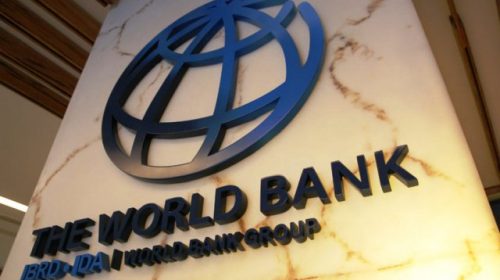CBN Retains Monetary Policy Rate At 14% … Says Nigeria’s exit from recession under threat

The Monetary Policy Committee (MPC) of the Central Bank of Nigeria (CBN) ended its two-day meeting in Abuja Tuesday, retaining the key lending rate at 14 percent.
The committee’s 263rd meeting, which was chaired by the chairman and CBN Governor, Godwin Emefiele, also left the Cash Reserves Ratio (CRR) rate at 22.5 percent.
Emefiele explained that seven members of the committee that attended the meeting agreed to maintain the current monetary policy stance while three voted to increase the rate.
The MPR is the rate at which the CBN lends to commercial banks and usually determines the cost of borrowing from the banks.
Emefiele however warned that weak economic fundamentals currently being shown by the Nigerian economy are putting the country’s exit from recession under threat.
Nigeria’s economy exited recession in 2017 after suffering contraction for five consecutive quarters,
According to him, the economy has started showing signs of weakness.
The economy recorded growth rate of 1.95 per cent and 1.5 per cent during the first and the second quarter of this year respectively.
Consequently, he noted that the slowdown emanated from the oil sector with strong linkages to employment and growth.
For instance, the late implementation of the 2018 budget, weakening demand and consumer spending, rising contractor debt, and low minimum wage are some of the risks to output growth.
Others according to him, are the impact of flooding on agricultural output, continued security challenges in the North-East and North-Central zones and growing level of debt
He said, “The MPC observed that despite the underperformance of key monetary aggregates, headline inflation inched up to 11.23 per cent in 2018 from 11.14 per cent in July 2018.
“The near time upside risks to inflation remain the dissipation of the base effect expected from 2019 election-related spending, continued herdsmen attacks on farmers and episode of flooding which destroyed farmlands and affected food supply ultimately.
“Relative stability has returned to the foreign exchange market buoyed by the robust external reserves with inflation trending downward for the 18th consecutive month.







Leave a Reply